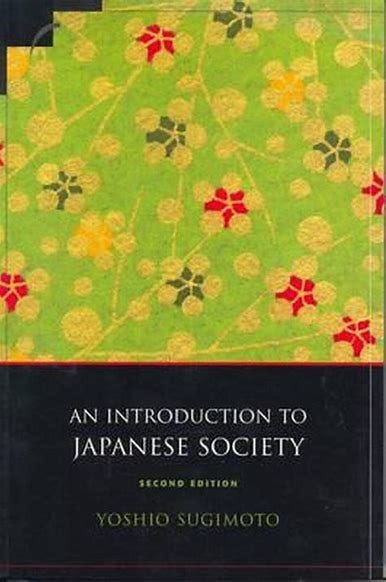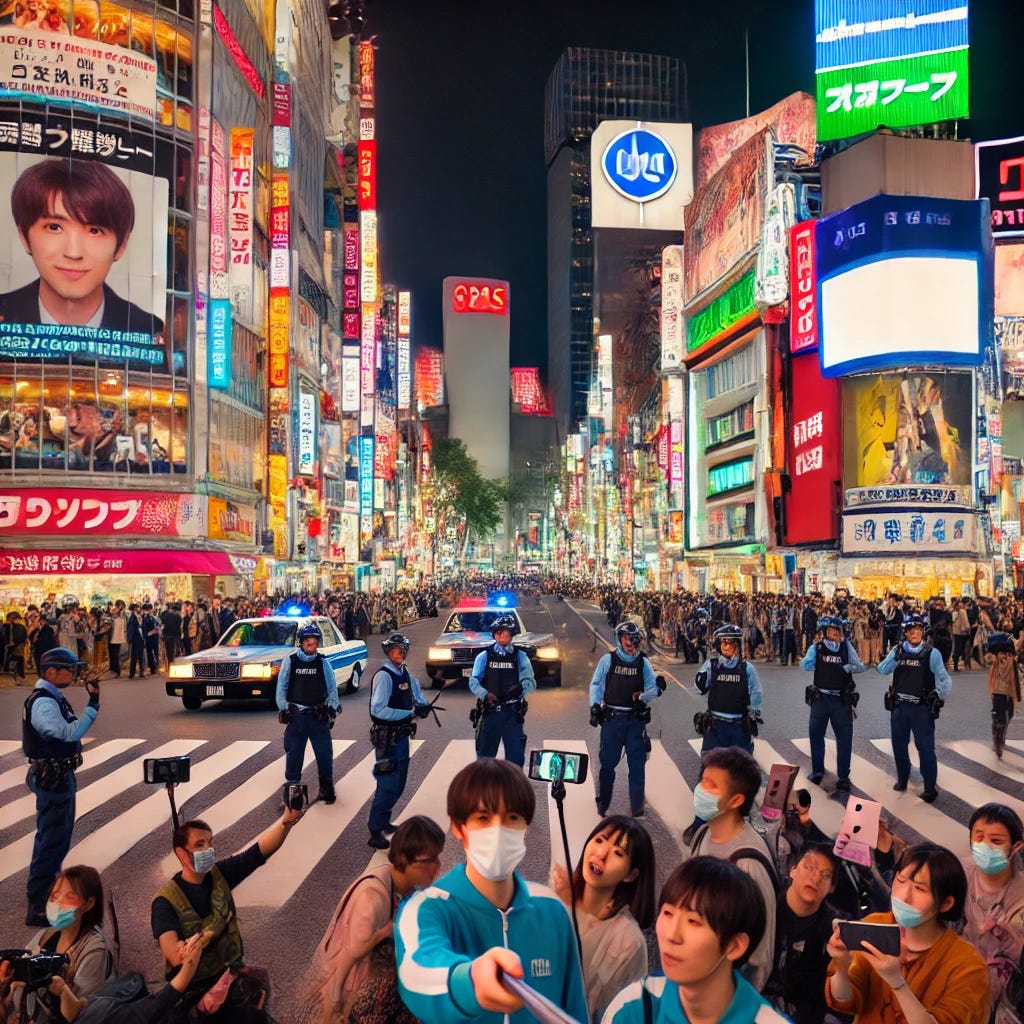About twenty years ago, when I was working as a journalist in Japan, an urban myth did the rounds about Japan Airlines. It was said that Japanese customers booking a long-haul ticket could pay a premium in order to be guaranteed a seat next to other Japanese people.
The great prize was predictability. You could rest assured that you wouldn't have to spend a 12-hour flight sitting next to someone who didn't know how to behave. Nose-picking, noise, smelly feet, unsolicited conversation: Japan Airlines would protect you from it all, in exchange for a modest fee.
I've been thinking about that myth as more and more videos emerge online of tourists behaving badly in Japan. One of my favourites shows a couple of men, presumably after a few drinks, riding around on the back of a bin lorry:
The Japanese have had a reputation, on and off down recent decades, for xenophobia. But I think for most people that’s true only in the purest sense of the word: a fear – a real trepidation – about non-Japanese and their likely standards of behaviour.
Readers who have lived in Japan for any length of time will no doubt be able to relate. You soon get a sense of basic expectations for what counts as acceptable public conduct. You discover which forms of public transport you can eat and drink on and which you can't. You work out the mysterious markings on train platforms so that you don't end up queuing for the wrong part of the train – or, much worse, failing to queue at all.
You learn when it's alright to speak up and when silence is preferred. And you learn too, I think, that in general people will judge you more by what you do than what you say. My wife, who hails from sunny Okayama, maintains a healthy scepticism about my big plans and breezy promises. I hear the phrase kuchi bakari quite a lot – you’re all mouth…
One of the things that strikes me about these online videos is how Japanese people caught in the vicinity of foreigners doing rude and riotous things rarely seem to respond or intervene. The footage quickly becomes fodder for television chat-show commentary. But while these scenes are playing out in front of people, they struggle to know what to do.
Why?
I think it’s because a social contract is for the most part an unspoken thing. That makes it more difficult to articulate your objections when people start to chip away at it. I can imagine someone objecting to the men on the back of the bin lorry on health and safety grounds, simply because that’s easier than attempting to paint the bigger picture for them.
It's important not to get too misty-eyed about Japan’s social contract - by which I mean the old promise that if you study hard, work hard and devote a certain amount of your time, energy and concern to other people, you'll be rewarded with membership of a stable and secure society.
Back in the noughties, I lived for a while in Chigasaki, on Japan’s Pacific coast, supplementing my meagre journalist’s income by teaching English. Some of those classes turned into group therapy sessions, as people spoke out about all the things that upset them about Japan. It felt wrong, they said, to express this in Japanese. Liberated by use of a foreign language, they made it clear that the downside of a strong social contract is unrelenting pressure: at school, at home, at work.
Once upon a time, this was my view when out walking in Chigasaki…
Two readers of IlluminAsia to whom I've spoken about this had similar experiences. They taught English in Japan through drama and found that whereas clients wouldn't dare criticize their employers in class, by creating a fictional scenario – a made-up company, say – their students would happily weigh in and share their troubles and gripes.
If idealising Japan is one pitfall, another is exaggerating its difference. There's a venerable post-war tradition amongst anthropologists and social psychologists of regarding Japan and the United States as representing opposite poles of the human personality.
Americans, it’s said, tend more towards individualism, romanticizing their pasts and their sense of purpose in life. (I'm often struck, watching American dramas, that when a character embarks on a lengthy personal anecdote the people around them don't heckle them or urge them to get to the point. Quite the opposite. They recede into a respectful silence and allow the tale to be told.)
The Japanese pole, as no doubt you've already guessed, is what the jargon calls the ‘socio-centric’ one. People's identities are more deeply rooted in a series of groups, from family through workplace to nation. A certain amount of self-abnegation is natural – and if not ‘natural,’ then certainly taught to the young and expected of adults.
This is my recommendation, if you’re after a scholarly take on what makes Japanese society tick.
It’s best not to cling to old stereotypes, but general trends along these lines remain undeniable. So, too, the operation in Japan of honne vs tatemae. Honne means your real or true feelings and thoughts. Tatemae is the face that you show and the rules that you follow because of who you're with at any given time.
Plenty of cultures, including the UK, have versions of honne and tatemae. But it's particularly marked in Japan. At its best, it means that when you're out and about – shopping, in restaurants, at work or on public transport - you pretty much know how you’re going to be treated by those around you. It’ll be highly-controlled public and professional personas all round.
A big question for Japan over the next few years is whether its social norms can survive in some form, with ever-larger numbers of tourists and much-needed foreign workers making their way into the country.
A survey from a couple of years ago suggests that around 70% of Japanese are anxious about the arrival of more foreign nationals because of differences in culture and customs. Video footage of people hitching a ride on bin lorries probably doesn't help. Nor does an emerging trend for tourists live-streaming in public places: doing outrageous things on Japanese streets, in restaurants and even in public toilets, for the amusement of their subscribers.
Tokyo’s near future? A gaggle of live-streamers bring the city to a standstill - as imagined by ChatGPT.
Some in Japan worry that its social contract – and the ability, as
puts it, to ‘have nice things’ – is threatened not just by rowdy tourists and a rapid influx of overseas workers. A younger generation of Japanese, too, are less inclined to live as their parents did. That includes not responding in the same way to the old verbal cues.A friend of mine told me the story of a young nurse who went into the bedroom of an elderly patient and began to sneeze. The patient asked her: kaze desuka – ‘do you have a cold?’ The nurse replied that she did, but that she was feeling much better, thank you. She had missed the point. This wasn’t a query about her health. It was an observation: clearly she was unwell and she ought not to be around elderly and vulnerable people.
In the past, most Japanese would have understood the meaning of that enquiry - ‘do you have a cold?’ They would have apologised and left the room. The tendency now amongst the young, thinks my friend, is a weakened ability or willingness to ‘read the atmosphere’ (the phrase is the same in Japanese: kūki wo yomu) combined with a narrowing focus on themselves.
Younger Japanese would no doubt point out that their lives are tougher and their prospects dimmer than those of their parents and grandparents. As in Korea, so in Japan: ever fewer young people are inclined to take the economic risk of marrying and starting a family.
It may be that in addition to tackling anti-social behaviour with greater force - and perhaps encouraging visitors to take an in-flight glance at an etiquette guide - Japan will need to nurture a form of civic nationalism to replace the older, ethnic sort.
This would involve a form of belonging that is open to anyone willing to maintain Japan's high standards of public conduct and concern for others, alongside investing the necessary time in learning the language. There are signs that whereas this is too touchy a subject for Japan's ruling conservative party, at the local level governments are starting to pioneer ways of integrating foreign residents into Japan by giving them more of a stake in how decisions are made.
I think learning the language is especially important, not for the sake of creating a high bar that will exclude people but because of the way language and social norms are deeply interwoven. To learn Japanese is to steadily appreciate the delicacy with which people strive to treat one another - ideally, at least.
One of my readers gave me a lovely example of this. If someone receives an unwanted invitation in Japan, rather than making up some unlikely excuse to get them out of it they might simply say chotto muri: ‘slightly impossible.’ A delightful phrase, after which no more needs to be said: no explanation given, no questions asked, and not too much embarrassment caused to either side.
It's worth remembering, amidst much doom and gloom both in Japan and in the UK, that unhappy social trajectories can change. Just a few days ago, a British Social Attitudes survey suggested that despite much media commentary to the contrary, levels of trust between people in Britain have actually risen over the past quarter of a century.
To return to
’s very helpful phrase, perhaps the Japan of the future will be able to hang onto its ‘nice things.’ And perhaps people in the UK may even gain more of them.In honour of one of West’s favourite examples when writing about Japan - its famously shiny public toilets, free from graffiti - let me end by sharing with you Chat GPT’s vision for high-tech British toilets, built along Japanese lines.
Imagine a harp rendition of ‘God Save the King’ playing as you enter:
Thank you for reading IlluminAsia! If you're enjoying yourself here - even slightly - please don't be shy about clicking the heart button at the top of the page. Please also feel free to share this with a friend and to subscribe if you haven’t yet taken the plunge.
—
Video and Images:
Bin lorry: Twitter/X:
Chigasaki: iStockPhoto
Tokyo live-streamers and the British toilet of the future: created the author using ChatGPT.








